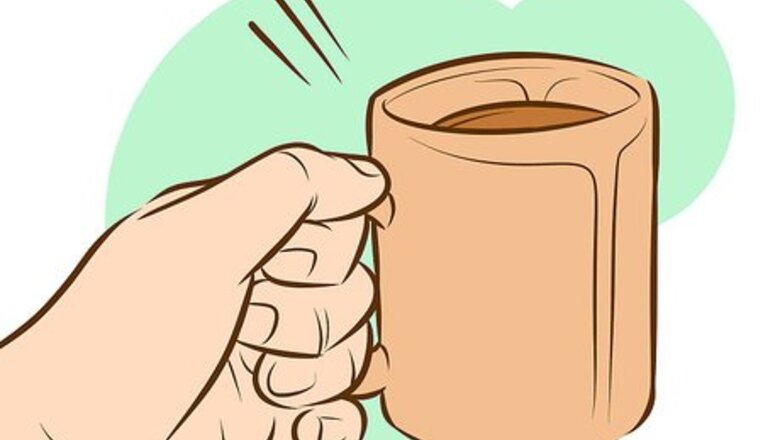
views
X
Research source
Before turning to prescription medication to regulate hyperactivity, try making changes to your daily routine and reduce distractions. Change your diet. Create calm spaces. Find productive ways to burn off that excess energy that often turns into hyperactivity.
Watching What You Put into Your Body
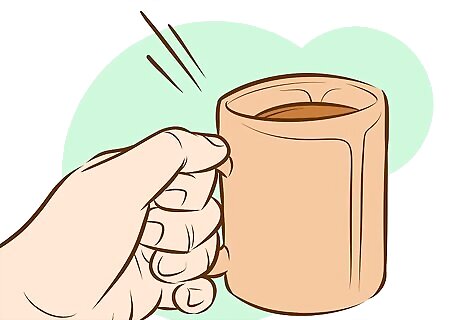
Avoid stimulants like caffeine. If you find that you have too much energy during the day, you may be consuming some form of a stimulant. Try to reduce your coffee intake. This is the most popular stimulant used by adults. You may think that you need your morning coffee in order to power through the day. Chances are, if you feel really hyper throughout the day, you may be overloading. Try cutting back on your coffee. Go from 3 to 2 cups a day and see if there is a change. If you are more of a tea drinker, do the same for tea. Caffeinated sodas can also be the culprit. Reduce the amount of soda you drink in a day. Drink water instead. Eat less chocolate. Just like with coffees, teas, and sodas, chocolate won’t necessarily lead to hyperactivity, but it can certainly give you a rush of energy that may be interpreted as such.
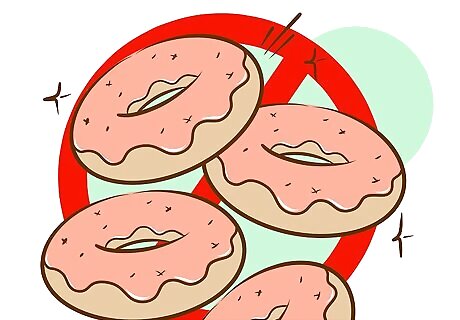
Eat fewer sugary foods. The primary concern with sugars is that they get into your bloodstream quickly. So if you eat a lot of sugary foods, you are constantly feeding your body a source of quick-burning energy. If you normally get really hyper after lunch, reduce the amount of sugar you take in at lunch. See if this helps.
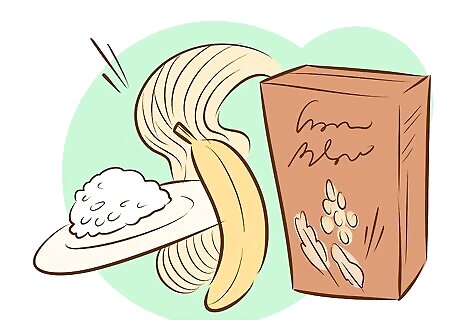
Eat foods without artificial coloring and additives. Many parents and medical practitioners agree that lab created colors and additives may lead to slightly higher levels of hyperactivity in children. There is no definitive study that points to artificial coloring or additives as a cause of hyperactivity. Studies that do exist rely on subjective findings, in part, because they have to rely on parents to describe the changes in their own children. Other opponents point to the fact that most food items with artificial ingredients are also loaded down with sugar. The stimulant sugar may be the cause of the increased hyperactivity.

Consume foods high in omega-3 fatty acids. Eat a lot of fish, like salmon and tuna. Many leafy green vegetables also contain fatty acids. These fatty acids facilitate the transfer of neurotransmitters in the brain. When your neurotransmitters function improperly, it can cause hyperactivity and loss of concentration. Oftentimes, omega-3 fatty acid deficiency and ADHD are mistaken for one another. Since your body cannot create these fatty acids, it is necessary for you to include them in your diet.
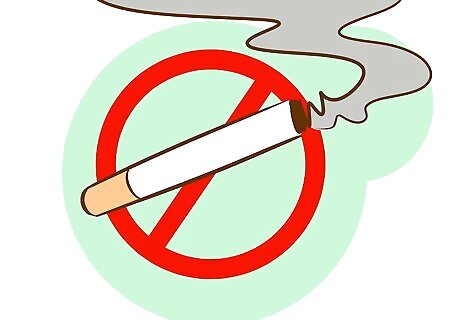
Stop smoking. Since nicotine is a stimulant, you may be getting an unneeded energy boost during your smoke breaks. Try skipping cigarette breaks at points in the day when you might otherwise feel hyper.
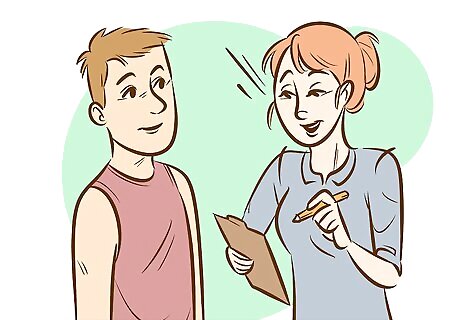
Talk to a nutritionist. If the above steps don’t help to alleviate hyperactivity, see a nutritionist. They can examine your particular diet and then suggest specific alterations to help your hyperactivity, energy crises.
Burning Excess Energy
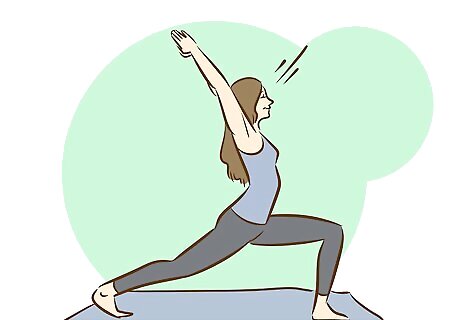
Get active and exercise. Hyperactivity comes from an excess amount of energy. Put that energy to good use by exercising. You don’t need to go to the gym. Make exercise a part of your everyday routine. Join a gym. Get out and run in your neighborhood. Or even just incorporate walks into your daily routine. If you live close enough to work, try walking instead of driving. If you take the necessary steps to burn excess energy on a regular basis, you won't have to worry about bouts of hyperactivity. If you feel yourself getting hyper before a big meeting, try running in place for a minute — long enough to use up some energy, but not long enough to look sweaty. Watch less TV. Most of the time, hyperactivity can be the result of too much downtime. Sitting and watching TV for extended periods of time means that your body is not burning very much energy. If you find that you feel hyper after watching TV, try reducing the time you watch or watch TV is short bursts rather than long stretches of time.
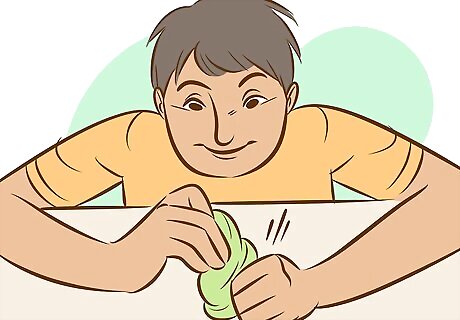
Fidget. Most often fidgeting appears as a sign of hyperactivity, but it is actually just the body trying to burn off excess energy. Since fidgeting is often involuntary, try to find a voluntary and fun way of fidgeting. Many people like to drum with their hands and feet. Try repeating small, nearly unnoticeable movements at home or at work, when you are feeling hyper. Whether you are and adult or a child, strategic "fidgeting" is a great way to burn energy.
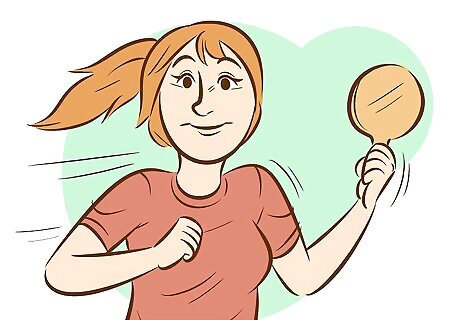
Take up hobbies that require movement. There are many hobbies that you might try. Play sports. Learn any dance that requires you to move a lot. Alternatively, you might learn a craft or a trade. Work with wood, brick, or some other building material that requires you to lift heavy materials. They key is to burn energy. If you learn something or are left with a product afterwards, you’ll be more likely to stick with it.
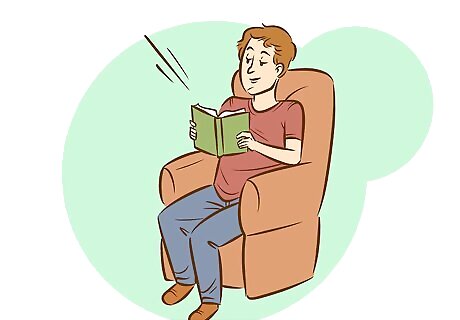
Exercise your brain. You can burn off excess energy with your brain too. Try activities that strain your brain like puzzles. Plan out your weekend in great detail. Focus on complex problems. Know that sometimes hyperactivity is just a sign of boredom.
Creating a Calm Environment
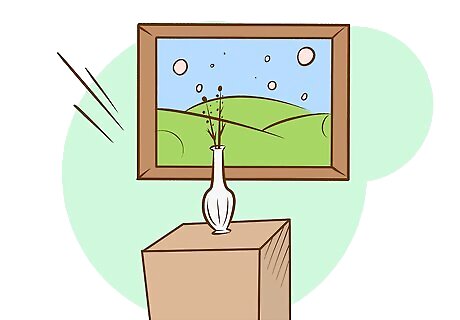
Introduce relaxing elements into your home or work space. Many people think that hyperactivity is caused by the busy and stressful spaces. If you can, include calming colors in your home or workspace. Paint walls serene blues, violets, and greens. Avoid harsh colors like reds, oranges, and yellows.
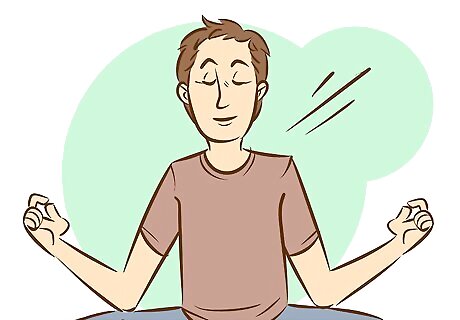
Meditate to reduce stress. If hyperactivity is partly the result of stress, there is no better way to reduce stress than through meditation. Take a moment to just sit in one place. Don't think about your problems or goals for the day. Just take a moment for yourself. Meditation has been proven to reduce blood pressure, which can reduce your hyperactivity. When you notice that your mind is racing, acknowledge that it's happening, and try to become aware of every thought and feeling you're experiencing. Let your thoughts slow down and pass by like clouds in the sky. This is a practice called mindfulness, and it can help you learn to better regulate your thinking.
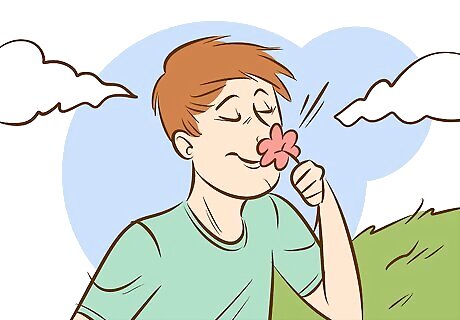
Go outside. Sometimes hyperactivity can be the result of anxiety. Maybe you’ve been in the same room for too long. Going outside for just 20 minutes is enough to rejuvenate you.
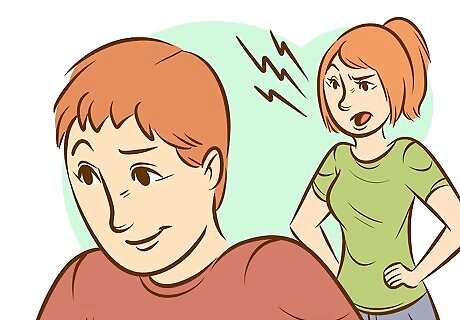
Reduce distractions. Hyperactivity is often the result of visual or auditory distractions. You may seem to be hyper, but it is just your brain jumping from stimuli to stimuli. Visual stimulation can exacerbate hyperactivity and concentration as well. Try placing your body in positions that reduce visual stimuli. Organize your workspace in a way that reduces your line of sight. Face the wall. Use large dividers to block your sight, almost like a jockey uses blinders on a horse to keep them from becoming distracted during a race. Sounds can be very distracting. Maybe coworkers chatting next to a water cooler catches your attention and then it is difficult to return to the task at hand. Find ways of reducing noise distractions like using noise canceling headphones. If you can control what produces the sound (i.e. like your cellphone, speakers, …etc.), turn them off ahead of time. You may consider using relaxing sounds to replace more distracting ones. Play soft music, like classical in the background. Keep in mind that calming music might not be the kind of music you prefer normally. A lot of music is designed for movement like dancing. You want music that will encourage you to stay still, calm, and relaxed.
Visiting a Professional
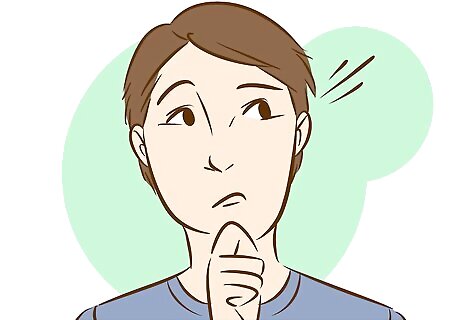
Determine whether or not you should see a professional. If nothing seems to help with your hyperactivity, you might consider seeing a doctor. If you suspect that you have ADHD, bipolar disorder, or something else more complex than just hyperactivity, speak to a specialist.
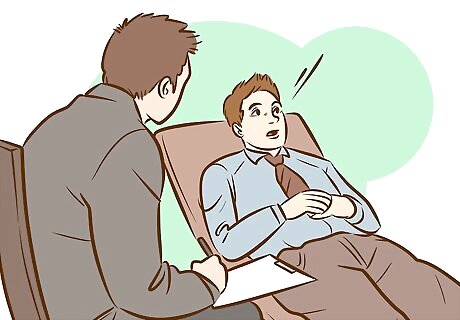
Consider seeing a counselor or therapist. Sometimes, it helps to talk about your hyperactivity. People trained in the treatment of hyperactivity will be able to advise you further. They may suggest stress reducing techniques like: counting from 1 to 10, "silent screaming", or other activities that help reduce anxiety when hyperactivity gets in the way of daily life. Counselors or therapists will also be able to advise you on whether or not to seek prescription help for you hyperactivity.
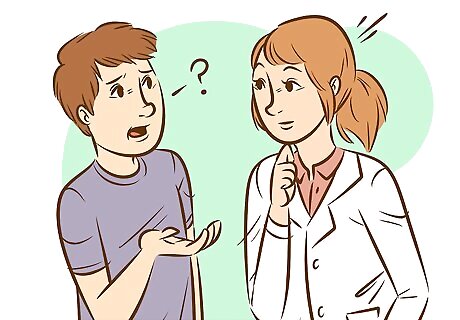
See a doctor. If nothing else is helping enough, it's time to see a medical doctor. See a doctor, especially, if you have trouble concentrating at work, can't keep schedules, constantly forget things, and/or if the stress caused by these issues starts to feel difficult to deal with. There is no verified test that proves whether you have ADHD or not. The doctor will most likely have you fill out surveys that will examine your behavior in the past and the present, identify situations where you felt too hyper, and take into account how your hyperactivity affects others. Doctors will most likely advise sufferers to follow a "multimodal" plan. These plans use a variety of techniques to curb your hyperactivity. This includes various prescriptions for hyperactivity. The most common medication is Adderall. Doctors will most likely encourage you to seek out behavioral therapy as well.













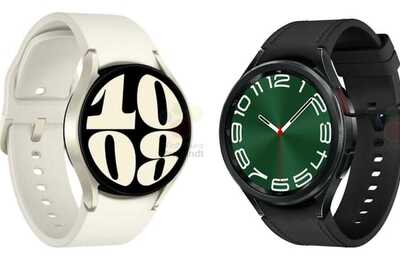





Comments
0 comment